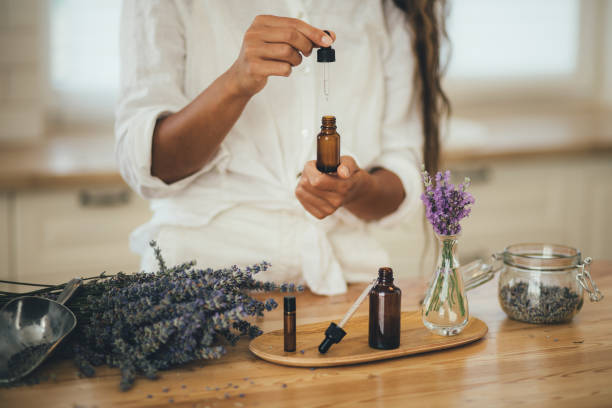"Unraveling the Healing Powers of Aromatherapy: A Modern Perspective"
Have you ever wondered why the scent of lavender can lull you into a peaceful sleep or why inhaling eucalyptus can clear a stuffy nose? Welcome to the world of aromatherapy, a fascinating realm where the right fragrances can have a powerful impact on our health and well-being. Let's explore this intriguing topic together, diving into the science, history, and modern-day applications of this holistic wellness practice.

A Historical Sniff into Aromatherapy
Aromatherapy, the therapeutic use of plant-derived, aromatic essential oils to promote physical and psychological well-being, has roots that extend back thousands of years. Ancient civilizations in Egypt, China, and India used aromatic plant components in resins, balms, and oils for medical, spiritual, and cosmetic purposes. In modern times, the term “aromatherapy” first appeared in the early 20th century, coined by French chemist Rene-Maurice Gattefossé. After burning his hand in a lab accident, Gattefossé discovered the healing properties of lavender oil when he applied it to his wound, leading him to further exploration and development of essential oil therapies.
Aromatic Science: How Does Aromatherapy Work?
Aromatherapy works through the sense of smell and skin absorption. When you inhale essential oil molecules, they stimulate your olfactory system, the part of the brain connected to smell. This system communicates with other areas of the brain like the amygdala and hippocampus, which are involved in emotions, memory, and learning. This explains why a particular fragrance can trigger a specific memory or emotion. On the other hand, topical application allows the oils to be absorbed by the skin and enter the bloodstream, providing localized benefits.
A Modern Twist to Aromatherapy: Current Trends and Research
Aromatherapy has seen a resurgence in popularity, with modern research supporting its potential health benefits. Studies have shown that certain essential oils can help with anxiety, depression, sleep disorders, and certain types of pain. For instance, a study published in the Journal of Alternative and Complementary Medicine found that aromatherapy massage significantly reduced pain and depression in patients with terminal cancer. However, more extensive research is needed to fully understand the scope of aromatherapy’s potential health benefits.
The Yin and Yang of Aromatherapy: Benefits and Challenges
While aromatherapy offers numerous benefits, it’s important to approach it with caution. Essential oils are highly potent, and improper use can lead to skin irritation, allergic reactions, or other adverse effects. Always dilute essential oils with a carrier oil before topical application, and consider consulting with a trained aromatherapist or healthcare provider before starting any new aromatherapy regimen.
A Whiff of Wellness: Practical Aromatherapy Tips
- Lemon oil can enhance mood and fight depression.
- Peppermint oil can boost energy and aid digestion.
- Sandalwood oil can calm nerves and help with focus.
- Lavender oil can relieve stress and promote sleep.
- Rosemary oil can improve brain function and memory.
Conclusion
Aromatherapy, with its roots in ancient civilizations, has evolved into a recognized and respected complementary therapy. Its ability to evoke powerful emotional responses and provide therapeutic benefits is increasingly backed by scientific research. However, a thoughtful and informed approach to its use is essential to ensure safety. As we continue to uncover the mysteries and potential of aromatherapy, who knows what other fragrant benefits await us in the future?




